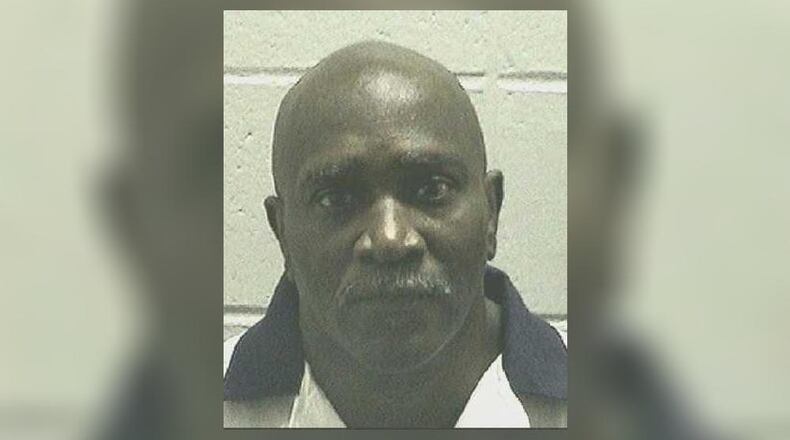The federal appeals court in Atlanta on Friday rejected a condemned Georgia inmate’s appeal that contended a juror’s racist views prejudiced the case.
In January, the U.S. Supreme Court granted Keith Tharpe a reprieve from execution and told the 11th U.S. Circuit Court of Appeals to determine whether one of the jurors in Tharpe's case voted for the death sentence because Tharpe was black.
In an affidavit, signed seven years after Tharpe's 1991 trial, juror Barney Gattie said, "I have wondered if black people even have souls." He also said: "There are two types of black people: 1.Black folks and 2. (Racial slurs)," and Tharpe "wasn't in the 'good' black folks category," according to court records.
The 11th Circuit denied Tharpe’s appeal by saying it was barred on procedural grounds — that the juror prejudice claims already had been raised before in the state courts and had been rejected.
Brian Kammer, one of Tharpe’s lawyers, said he will appeal the ruling once again to the U.S. Supreme Court.
“Today the 11th Circuit said that a death row prisoner cannot appeal his sentence even though one of the jurors who imposed his death sentence called him the N-word and admitted that his vote to sentence Mr. Tharpe to death was based on Mr. Tharpe’s race,” Kammer said. “Keith Tharpe’s case cries out for a full appeal where the strong evidence that racial bias led to his death sentence can be carefully examined.”
Tharpe was sentenced to death for crimes he committed after his wife moved out to escape their violent marriage.
On Sept. 25, 1990, Tharpe drove a pickup truck to intercept his estranged wife and her sister in law, Jaquelin Freeman, as they set out for their jobs in Macon. Tharpe blocked their car, dragged Freeman out and shot her three times with a shotgun.
Tharpe then kidnapped his wife and allegedly sexually assaulted her. A Jones County jury convicted Tharpe and sentenced him to die for Freeman’s murder during a trial held just three months after the crimes.
When the high court granted Tharpe a reprieve in January, it said that Gattie’s remarkable affidavit “presents a strong factual basis for the argument that Tharpe’s race affected Gattie’s vote for a death verdict.” But the court’s 6-3 majority also acknowledged that Tharpe faced a “high bar” to have his claims reconsidered in federal court and “it may be that, at the end of the day” his appeal fails.
About the Author
The Latest
Featured



